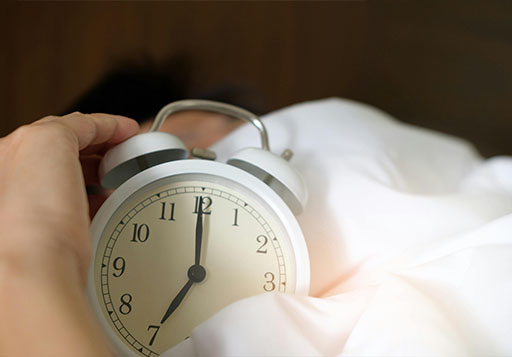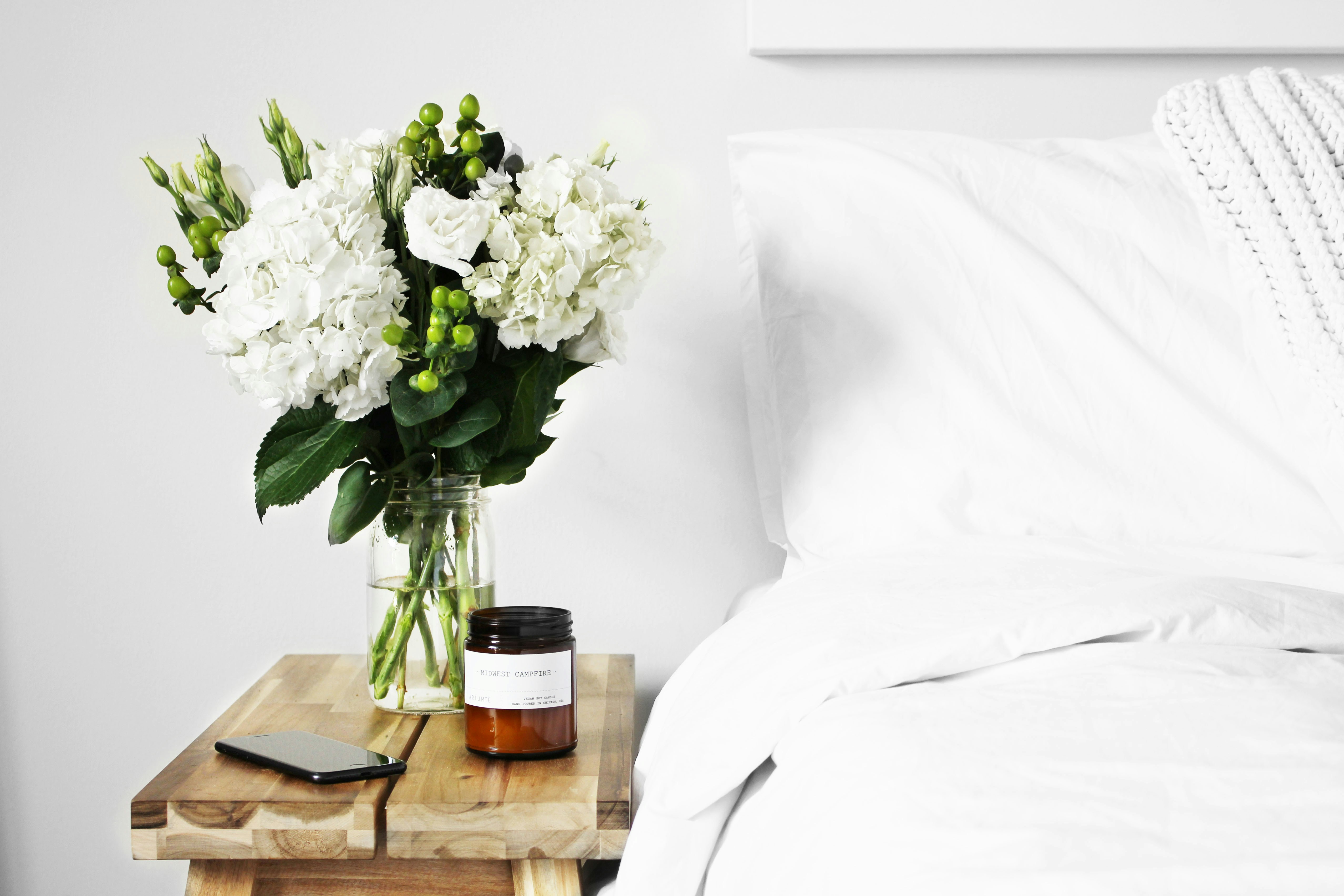World Sleep Day 2021: How to sleep better

Author: Jonathan Warren
Mark your calendars and get your best PJs ready: this year’s World Sleep Day is on the Friday 19th March!
Sleep and its health and wellbeing benefits are firmly on the agency, so in honour of the big day, we’re serving up some essential tips to get you thinking about how you can consistently get a quality night’s sleep.
What is World Sleep Day?
We know what you’re thinking, but sadly, the answer is no. World Sleep Day is not a global all-day sleeping challenge.
It’s much more important than that! Hosted by the World Sleep Society, World Sleep Day is a vital day in the calendar as it promotes and advocates healthy sleep for all, as well as raising awareness around key issues related to sleep disorders. Topics like sleep apnoea and insomnia will be on the agenda and there will be Zoom conferences and discussions aplenty, packed with top tips for better sleep from experts around the globe.
To find out more about the events on offer, or how you can get involved in this year's World Sleep Day, visit the campaign’s website for everything you need to know.
Why is a good night's sleep so important?
Lack of sleep can lead to a risk of various physical issues from high blood pressure to diabetes and can also increase the chances of developing poor mental health. If you’re experienced a significant period of low mood, it’s worth asking yourself, are you getting enough sleep? Are you getting a good sleep?
We spend a large portion of our lives asleep and quality kip is vital to everyone's physical and mental health. We often forget that sleep is how we recharge. It’s the body’s way of repairing, restoring and replenishing us for when we wake up ready to seize the day.
Physically, the body needs sleep to repair itself – its muscles, joints, and energy reserves – after a day's activities.
Mentally, sleep is a time where your brain processes the day's events and has time to restore. A good quality sleep is key to improved memory, enhanced creativity and stronger muscle memory, as well improved physical health.
How to get a good night's sleep
There's no simple answer when it comes to how to sleep better. A quality kip is made up of many constituent parts and, whilst it's never guaranteed, sticking to good habits with the aim of better sleep in mind is a sure-fire way to promote healthier snoozing patterns and elevate your sleeping game.
Routine
When it comes to sleep, it’s all about managing our circadian rhythm which is essentially our inner body clock. Our circadian rhythm is influenced by many things but managing your sleep schedule is the best way of regulating your internal body clock to achieve consistent and restorative sleep.
Whilst it might not always be possible, keeping to consistent times for hitting the hay and waking up is an extremely effective way of helping your circadian rhythm nudge you towards better sleep. If your routine is that good you might even find yourself waking up without needing an alarm – there's a reason it's called your body clock!
Lighting
Our eyes react to light – simples. And so naturally, when it comes to sleep you absolutely have to think about your lighting setup. Light exposure at the wrong time can suppress melatonin, a sleep-inducing hormone.
Set an alarm to remind you to shut your curtains in the early evening so you can begin to adjust to less light and let the melatonin start to work its magic well before bedtime. If your bedroom is a little on the bright side, investing in some quality blackout blinds, or even just a good quality eye masks, could make your next night's sleep the best yet.
Diet and exercise
Diet and exercise play central roles in our health and vitality. A healthy diet and exercise regime can work wonders for our physical and mental health, thereby improving our sleep quality.
Working out can reduce stress and tire your body out, helping you to sleep better. The rise and fall in temperature pre and post workout can also help with your body clock, as the fall in temperature helps to trigger sleepiness. But be warned, a high intensity workout too close to bedtime might leave your mind too pumped up to ease into a restorative night's sleep.
In terms of diet, reducing your caffeine, nicotine and alcohol intake is an easy win on the goal towards better sleep as they all impact your rapid eye movement (REM) sleep. In layman’s terms, this means drinking coffee and alcohol or inhaling nicotine will keep you in a lighter stage of sleep if you consume them just before bed. Rather than having a good rest, you’ll have a lighter, more disrupted sleep that will leave you feeling groggy in the morning. So why not swap the coffee or wine for a green tea, instead?
It’s also best practice to have your dinner in the early evening. As well as firing up activity in your brain, which is a nightmare just before bed, eating too close to sleep could leave you feeling too full or having uncomfortable indigestion – not a great recipe for a good bit of shut eye!
Technology
Increased screen time, something increasingly unavoidable in today's modern life, has a detrimental impact on our sleep as the blue light from TVs and phones suppress our melatonin levels. Melatonin is a natural hormone located in our brains, which helps control our sleep cycle.
For those needing something to do before shutting their peepers, reading is a great alternative to mindless scrolling on social media and can have huge benefits such as reduced stress and improved sleep. For more benefits on choosing a book before bed, check out our blog on how reading before bed can help improve your sleep.
Meditation and mindfulness
Sometimes a busy mind can be sleep's worst nightmare. Anxiety can make it harder to fall asleep and sleep deprivation can worsen anxiety – talk about vicious circle. So, if you know your mind is overactive prior to sleep, practicing mediation or mindfulness can be an effective way of calming the brain, focusing on your breathing, and preparing to rest your head.
For more tips on how to approach sleep if you struggle with anxiety, here are our tips on how to get a better night's sleep in today's uncertain world.
Creating the perfect sleep sanctuary
Ask yourself this question: is my bedroom equipped for the quality sleep I need? If the answer is no, then perhaps some changes are in order.
Your bedroom should be a sanctuary for sleep and relaxation. Making sure your bedroom is free of unnecessary distractions is a vital first step towards better sleep – a handy tip is to plug your phone on charge out of arms reach, or even better, in a different room! You also need to think about the lighting. Do you need some blackout blinds? Or maybe it's time to invest in a smart SAD lamp to avoid the glare of larger and brighter lights?
Beyond the physical layout and lighting, relaxing candles or lavender scents could be just what you need to take your sleep to the next level. Throw in some comfy pyjamas and a good book, and you're well on your way.

Make sure your mattress is working for you
And last but by no means least, there's your bed to think about. If your mattress is doing you an injustice, it’s time to upgrade. A bad mattress means a bad sleep, end of story.
Buying a new mattress is an extremely personal choice, after all, it may well be your sleeping companion for the next decade! Whether you prefer the gentle support of a pocket sprung mattress or the firm body-moulding benefits of a memory foam mattress, explore our range to find the perfect match for you.
Not sure where to start? Check out our guide on Choosing the Perfect Mattress.



